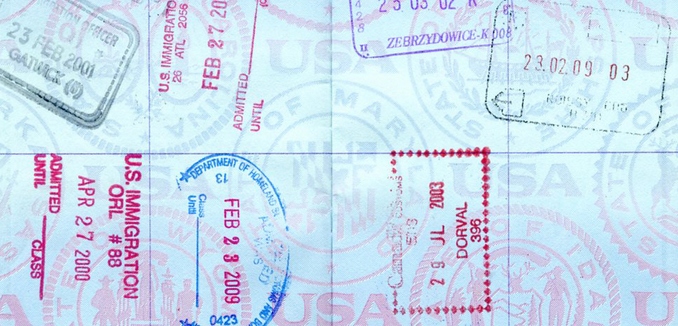After successfully working with the Obama administration on changes to the country’s visa program in order to strengthen efforts to keep terrorists out of the United States, Congressional leaders are furious that the White House appears to be unraveling that law by significantly expanding exemptions to the program, seemingly at the request of the Iranian government.
Because Iran is designated as a leading state sponsor of terror, the recently-passed law excluded people who had visited the Islamic Republic from participating in the Visa Waiver Program, which allows travelers to enter the U.S. without a visa. But after sustained pressure from the Iranian government, Secretary of State John Kerry assured his Iranian counterpart, Mohammad Javad Zarif, that the administration would issue waivers to Iranians or travelers who had recently been to Iran. Kerry said that visa waivers would be granted so as not to interfere with “the legitimate business interests of Iran.” Kerry’s assurance to Zarif came despite his declarations to Congress that Iran would not object to non-nuclear-related sanctions imposed in the wake of the nuclear deal.
Twenty key members of Congress objected to Kerry’s pronouncement, writing a letter to Kerry and Secretary of Homeland Security Jeh Johnson saying the the promised exemptions would render the legislation “meaningless.” But at the same time, as Josh Rogin reported Wednesday for Bloomberg News, Kerry was pushing for even more changes: Not only would Iranian citizens get waivers, but “the State Department was also pressing to exempt all dual-nationality Iranians who are outside of Iran, in the hope of encouraging political change inside that country.”
According to an internal January memo obtained by Rogin, the State Department intended to grant automatic exemptions to Iranian-American dual-nationals who were born outside of Iran or who emigrated from Iran after the 1979 revolution. “The United States has a national security interest in Iran moderating politically over time,” the memo said. “Penalizing those who were born outside Iran runs counter to this objective because it alienates a group that largely support the U.S. goal of encouraging Iran to moderate politically.”
The “national security interest” rationale for expanding the waiver program would allow Johnson to issue exemptions at his discretion. Rogin reported that the memo urged the secretary to apply exemptions “liberally.”
The memo also added eight categories of people who could be exempted, far more than what Congress had originally negotiated with the White House. The Department of Homeland Security had already announced five of those categories when it issued its guidelines for the new visa rules in January: “Anyone who had visited Iran, Iraq, Sudan, or Syria on behalf of an international organization, non-governmental organization, or as a journalist, and those who visited Iran or Iraq for ‘legitimate business purposes.’”
Members of Congress considered the widening of the exemption criteria to be a violation of the law. “The president has decided he is going to break this law—and he plans to do so, in part, to accommodate the world’s leading state sponsor of terror, Iran,” Rep. Mike McCaul (R – Tex.), chairman of the House Homeland Security Committee, told Rogin.
“Weakening [anti-terror] measures to keep Obama’s nuclear deal intact was bad enough,” Rogin wrote. “Weakening them further for amorphous political goals, as the State Department suggested, would undermine the spirit of the law and poison any future negotiations.”
The revelations that the State Department seeks to expand the visa waiver program as means moderate Iran come amid growing indications that the Iranian regime is become more extreme and anti-American.
[Photo: Tiffini / Flickr ]




